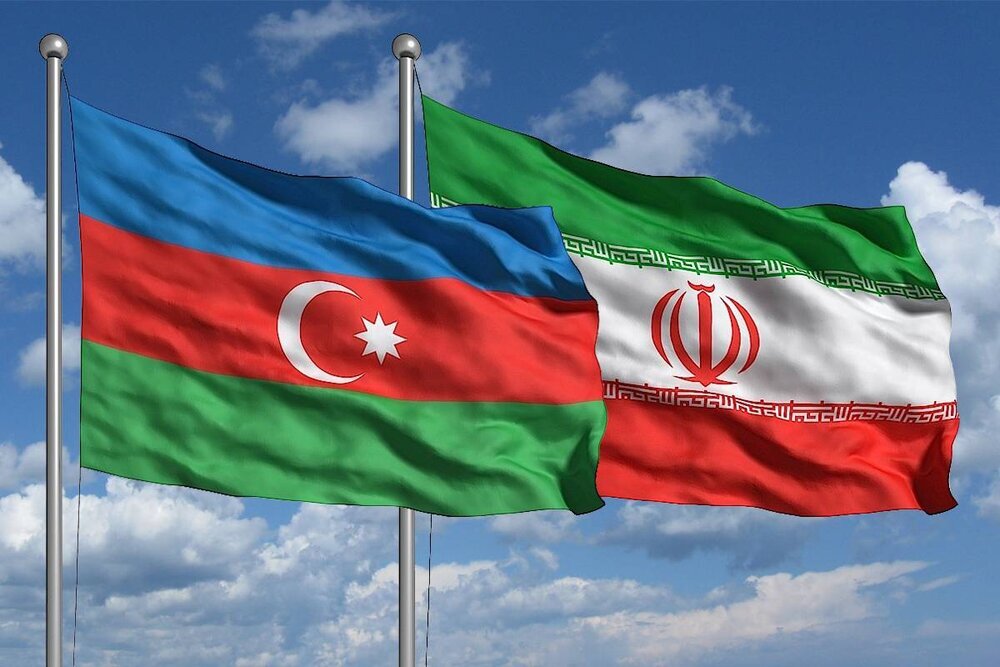Poem dispute fails to undermine ties built on historical roots

TEHRAN – Turkish President Recep Tayyip Erdogan has recited epic poems that sparked widespread outrage in Iran, with many Iranian officials strongly rejecting any territorial claims against Iran. Some Iranian experts say Erdogan’s remarks may undermine Tehran-Ankara relations but is unlikely to strain the strong bonds between Iran and the Republic of Azerbaijan.
A bitter dispute erupted between Iran and Turkey on Thursday after President Erdogan recited highly controversial poems during a parade in the Azerbaijani capital of Baku.
“They separated the Aras River and filled it with rocks and rods. I will not be separated from you. They have separated us forcibly,” read the poems.
These few words caused diplomatic tensions between Iran and Turkey due to their symbolic meaning against the territorial integrity of Iran. Iranian Foreign Minister Mohammad Javad Zarif, who rarely tweets in Persian, broke his habit of not using the Persian language to publish a blistering tweet against the Turkish president.
“Pres. Erdogan was not informed that what he ill-recited in Baku refers to the forcible separation of areas north of Aras from Iranian motherland. Didn't he realize that he was undermining the sovereignty of the Republic of Azerbaijan? NO ONE can talk about OUR beloved Azerbaijan,” the chief Iranian diplomat tweeted.
Zarif also published the same tweet in Persian. The Persian version of the tweet is slightly different from the English one. “They didn’t tell Erdogan that the poem that he wrongly recited in Baku is related to the forcible separation of areas north of Aras from Iranian motherland,” Zarif said in the Persian tweet.
Aras is a border river between the Republic of Azerbaijan and two ethnic Azeri Turk-populated provinces of Iran, namely Ardabil and East Azerbaijan. The river is said to be a symbol of what some Iranian Azeri separatists call the separation of Iranian Azerbaijan from the Republic of Azerbaijan.
Also on Friday, Iran’s Foreign Ministry summoned the Turkish ambassador to Iran to strongly protest Erdogan’s poems. “The Turkish ambassador was informed that the era of territorial claims and warmongering and expansionist empires was over,” the Foreign Ministry said in a statement. Ankara also responded by summoning the Iranian ambassador to Turkey.
Meanwhile, a considerable number of current and former Iranian officials railed against Turkey for harboring ambitions to apparently threaten Iran’s territorial integrity. The Iranian Foreign Ministry told the Turkish ambassador that “the Islamic Republic of Iran does not allow anyone to interfere in its territorial integrity and, as its glorious history shows, it will not compromise on its national security at all.”
Iran’s strong reaction to the Turkish president is another indication that how determined Iran is to counter threats to its territorial integrity, especially if such threats come with efforts to push the country’s ethnic minorities into standing against the central government. Iran has always said that it will not let anyone sow discord among its people or threaten its territorial integrity.
But aside from territorial integrity, some Iranian experts have pointed to another possible motive behind Erdogan’s controversial poems. According to these experts, Erdogan may have sought to undermine Tehran-Baku relations by addressing sensitive issues such as the bonds between the two sides of Aras River.
“By uttering words that are now being protested by the people and the government in Iran, he has tried to bring his country closer to the Republic of Azerbaijan. Therefore, in this case, he acted not as a president, but as the chairman of an economic consortium. A politician must know that the most important issue for any country is its territorial integrity,” Bahram Amirahmadian, an expert on Central Asia and the Caucasus, wrote in an op-ed for the Iranian newspaper Hamshahri.
Other experts called on Erdogan to be fair and stop acting like a “big brother”.
Assadulallah Athari, an expert on Turkey, told the Aftab Yazd daily that many leaders in the region, including Saddam Hussein, had sought to play the role of big brother and lead the region, but all ended up ill-fated.
“It is very unfair for Mr. Erdogan and the leaders of Azerbaijan to forget Iran’s help at a time when the only thing they had was loneliness. Erdogan should at least remember the coup era,” Athari said.
Iran supported the Republic of Azerbaijan during the 44-day Nagorno-Karabakh war, which ended nearly a month ago after Russia brokered a ceasefire deal between Azerbaijan and Armenia.
Leader of the Islamic Revolution Ayatollah Seyed Ali Khamenei expressed support for Azerbaijan, saying all Azerbaijani territories occupied by Armenia should be freed.
“This is a bitter incident and it threatens the security of the region. Of course, all Azerbaijani territories occupied by Armenia should be freed. All these lands should be given back to Azerbaijan. One of the main conditions is that these lands should be returned to Azerbaijan. The Republic of Azerbaijan is entitled to be in control of these lands, and therefore, all of them should be freed,” Ayatollah Khamenei said in an early November televised speech.
He added, “Of course, the safety of all Armenians living in those lands should be ensured. International borders should be respected and the two sides should not transgress against the borders of other countries. The integrity of international borders should be protected and terrorists should not be allowed to deploy their forces near the borders. According to the reports that we have received, although some people deny them while there are reliable reports confirming this, a number of terrorists from here and there have become involved in this war.”
Azerbaijan’s Foreign Ministry “highly” appreciated the statement made by the Leader, saying that Tehran-Baku relations “built on historical roots, will continue to develop successfully and will serve to ensure peace, stability and prosperity in the region.”
